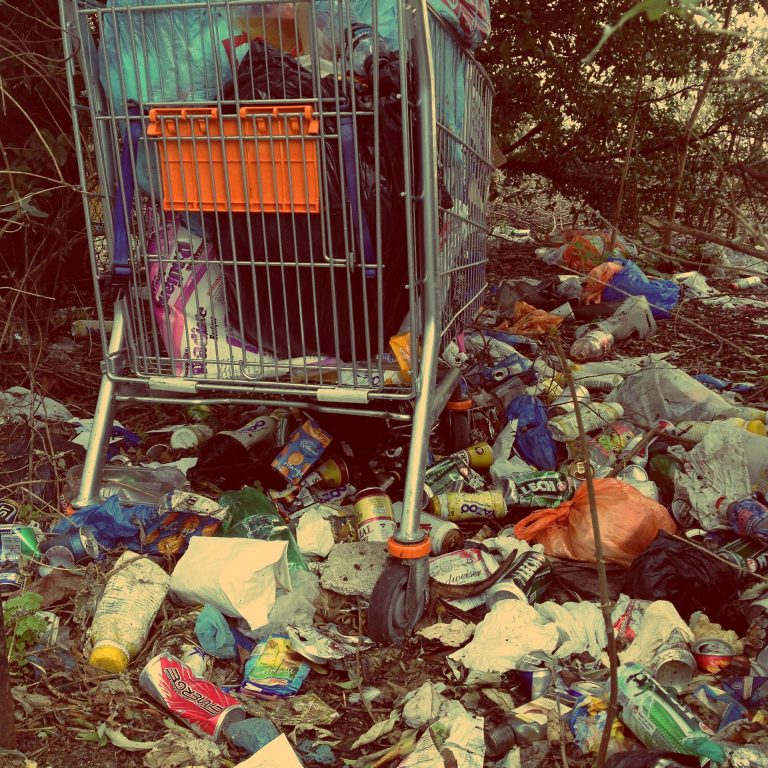Fly-tipping incidents are causing people headaches throughout the UK, with those with farm land facing problems in particular as those breaking the law see the space as an opportunity to illegally dump waste instead of seeking out authorised methods. Are you a victim of fly-tipping? Lycetts, a specialist farm insurance provider, aims to assist as they have put together this comprehensive guide about what to do when someone has fly-tipped on your land… Understanding what is meant by fly-tipping Fly-tipping is when large items or rubbish is dumped onto land illegally as it is not licensed to receive them. There are many items which can be defined under the banner of fly-tipping, including a bin bag filled with rubbish, tyres, waste which has come from construction activities, mattresses, beds and garden waste. Allison Ogden-Newton, the chief executive at Keep Britain Tidy, has gone as far as to claim that fly-tipping has reached “crisis levels” across the UK. However, this much is indeed evident when analysing the results of a freedom of information request that was submitted by ITV News and reported on by The Daily Telegraph. In some of the nation’s council regions, the FOI request has found that the number of fly-tipping incidents has risen by more than a fifth year-on-year. For example, almost 40,000 reported incidents were recorded in the North London district of Haringey between November 2015 and December 2016, with more than 30,000 incidents also reported in Manchester over the same period. There are some council regions where fly-tipping cases have actually decreased. Unfortunately, the problem is nowhere near being completely solved in any UK region though. In Birmingham, for instance, the number of fly-tipping cases are down by 13 per cent between November 2015 and December 2016. However, the figure during this period was still recorded at 21,000 offences. “Fly-tipping is an epidemic, it’s reached crisis levels and something needs to be done about it,” points out Ms Ogden-Newton. “Local authorities are overwhelmed with instances of criminal fly-tipping and we need to address this urgently.” Scotland in particular is facing many problems with fly-tipping, adds James Cuthbertson, an account executive at Lycetts. Near to 61,000 fly-tipping incidents are recorded in this country every single year, Mr Cuthbertson has found. He commented: “The culprits tend to think of this practice as a victimless crime; but estimates put the cost to Scottish tax payers at £8.9 million a year to clear and dispose of tipped rubbish from council land. Farmers and other countryside custodians must meet the cost of clearing rubbish from private land themselves, at an average of £1,000 a time.” The punishment for fly-tipping Attempts have been made to try and stop those committing fly~tipping incidents from going ahead with the crime. According to figures obtained from the BBC, a total of 1,602 prosecutions for fly-tipping were carried out across England between 2016 and 2017. What’s more, 98 per cent of prosecutions made resulted in a conviction. During the same time period, councils across England served 56,000 fixed penalty notices in regards to cases of fly-tipping. The maximum penalty for fly-tipping is up to five years imprisonment and an unlimited penalty. It is also important to note that those who permit fly-tipping to take place on their land or any land that they rent will also be committing a fly~tipping offence. Mr Cuthbertson was keen to note though: “Fines of up to £40,000 can be imposed but, given budgetary constraints, the pursuit of fly tippers is well down the list of priorities of councils and the police. Furthermore, it is hard to gather evidence to bring a successful prosecution.” The approach to take when a fly-tipping victim First things first — you are responsible for cleaning up any rubbish which appears on your private property, with this being the case whether the items are from a fly-tipping incident or otherwise. Be cautious when handling waste that has appeared due to someone fly~tipping on your land though, as it might be hazardous. Therefore, bags and drums should not be opened and piles of soil should be a cause for alarm bells as the material could be contaminated or hiding dangerous material. Instead, aim to make a record of every detail you can about the waste you’ve discovered. This includes where you located the waste, as well as taking photographs if possible. After all details have been recorded, report the case of fly-tipping to your local authority: Those in England and Wales should head to this GOV.UK page and report fly-tipping by first entering the postcode where the waste has been discovered. Those in Scotland should report fly-tipping waste by either filling in a simple online form on DumbDumpers.org or contacting Stopline directly by calling 0845 2 30 40 90. Those in Northern Ireland should head to gov.uk and find details for their local council, who will be able to advise on the waste disposal sites and recycling centres based nearby for the safe and legal recycling or disposal of unwanted items. Secure all waste in a manner where it cannot be interfered with or added to once reported. There are some steps to take when the waste is taken away too. First and foremost, do not take the waste to a licensed site yourself unless you’re registered as a waste carrier. If hazardous waste has been identified, it should only be carried and then disposed of by someone who is licensed to deal with hazardous waste. Using someone else to remove the fly~tipping waste? Be sure to get appropriate documentation — it should include details about the waste and those who are taking it away — and keep all information about clearance and disposal costs safe, as these can be recovered in the event a successful prosecution is made against the crime committed. Mr Cuthbertson also advised: “In the event you wake one morning to find the midnight cowboys have paid you a visit, if the problem is severe, it is worth consulting with your





